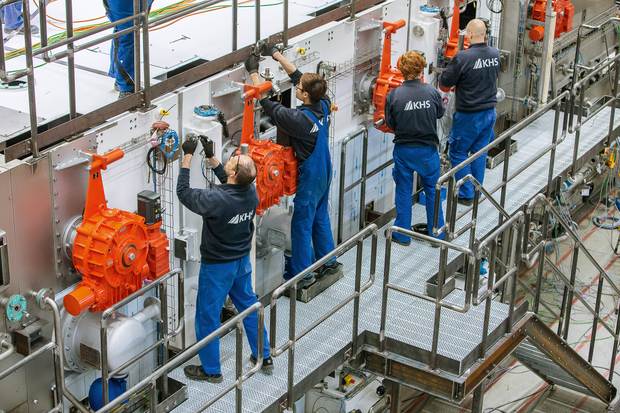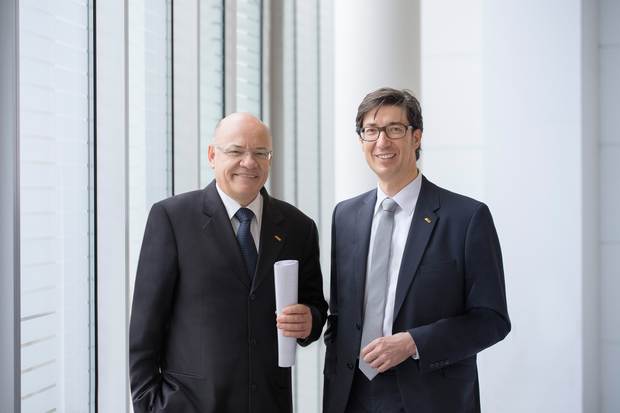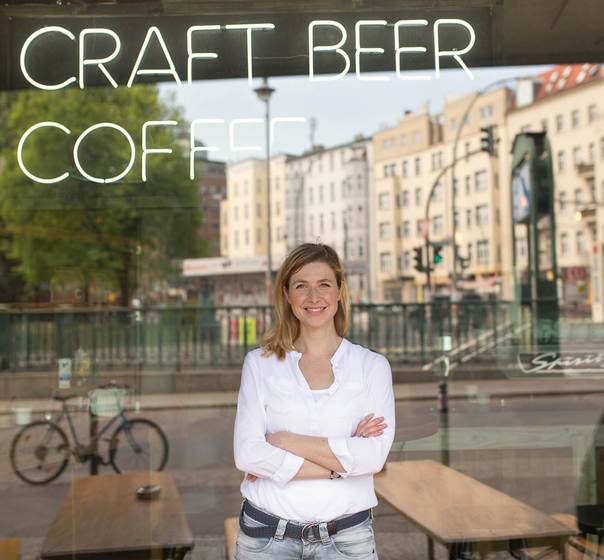Master brewer Nico Gehring and systems mechanic Florian Imig started making their own beer a few years ago. When in the summer of 2015 Gehring departed for Singapore to help KHS Asia out as sales manager, this was not the end of the project for Imig. He went looking for another partner and found not one but five suitable candidates; together with four master brewers and an engineer for food technology, all work colleagues, things then started to get moving. “We were all really keen, had the necessary knowledge and a bit of experience,” Imig sums up. “So we joined forces and founded the Brewderschaft Kreuznach [Kreuznach Brotherhood].”
A good friend gave them the use of a large, pleasant room and the backyard in a rear house in Bad Kreuznach and the young men amassed the necessary equipment. Kim Naatz lists what you need before you can get down to the serious business of making beer. “A malt mill with two rollers, a home-made brewing plant for up to 90 liters, two pressureless fermentation vats holding 100 liters each, a big refrigerator and lots of bottles, brushes, and hoses.” There are still several items on the wish list when it comes to equipment, as Sebastian Herold adds. “Kegs would be great or a small cylindroconical tank for easier handling during fermentation and maturation.”
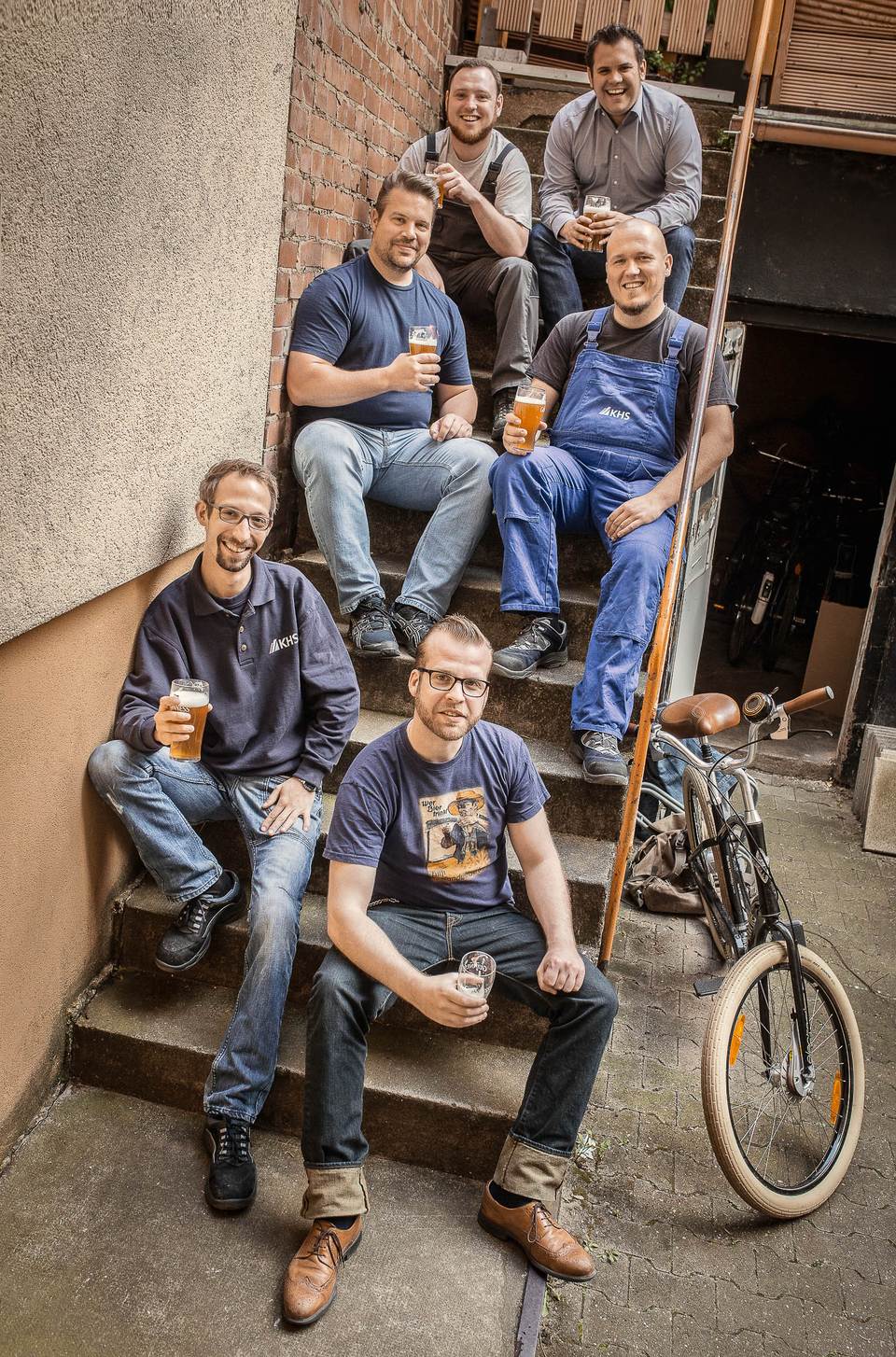
Saved by improvisation
It’s still a long way to the first KHS Innofill Glass Microfiller, however – and one which is somewhat hard going, as the young hobby brewers have already found out to their cost. “In our first brew the lauter tun was immediately blocked because we ground the malt too finely,” reports Herold, speaking of the only real setback to date. With a bit of improvisation they managed to save the beer. There’s still room for more professionalism among the hobby brewers, admits Matthias Mikulla. “We could improve on our bottle washing, optimum temperature control during mashing, fermentation, and filling.”
So far the men from KHS have only made their beer according to the German Purity Law. The malt comes from a Bad Kreuznach malthouse and the hops are procured on the Internet as pellets. They vary the types in order to try out different nuances in taste. Sebastian Schneider explains. “As we made beer ourselves during our studies where we were able to use all available types of hop and malt, we’ve developed a strong sense for different taste profiles. Cascade, for example, is reminiscent of lychee or grapefruit and Spalter Select has a more herbaceous, floral, and earthy flavor.”
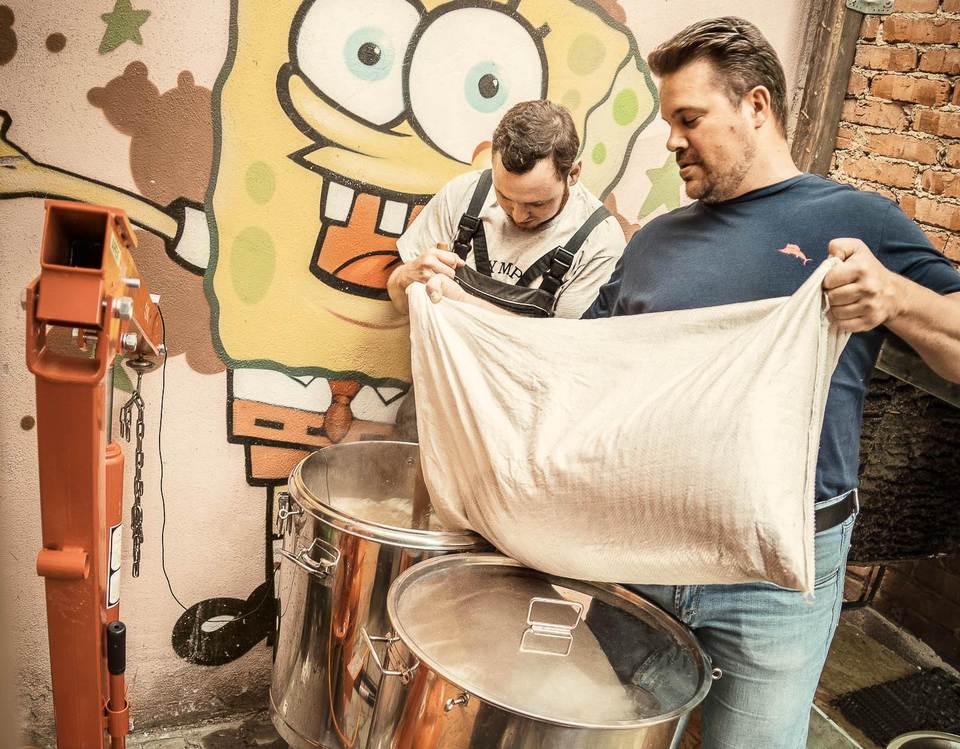
100% natural
Kim Naatz describes the Brotherhood’s philosophy. “For us beer is both a semiluxury food and part of our identity. We don’t filter or pasteurize our beer because we like it better that way. This gives us a product which is 100% natural.” They also know how and when their beer should best be consumed. “Beer tastes best drunk in company – and chilled but not cold. Only beers which don’t taste any good have to have a temperature of less than 6°C,” explains Herold. When asked what’s the best time to enjoy a beer, Naatz gives a short and cheery reply: “No beer before four!” He and his friends couldn’t make merry much earlier anyway, as their hobby eats up a lot of time. It takes an entire day for a brew to be completed, with bottling taking up another half a day. Naatz thus knows that every helping hand is welcome. “Our families give us lots of support – chiefly when it comes to tasting the beer when it’s finished,” he grins.
Going public
The brewers will soon find out if their beer is a success outside their respective circles of relatives when they go public; they will be selling a specially brewed beer for and at the medieval market in nearby Ebernburg. They will decide how to carry on with the Brewderschaft depending on the response they have at this big local event. “We first have to put some money in the till before we can make any further investments,” says Herold, his prospects for the future nonetheless optimistic.




















